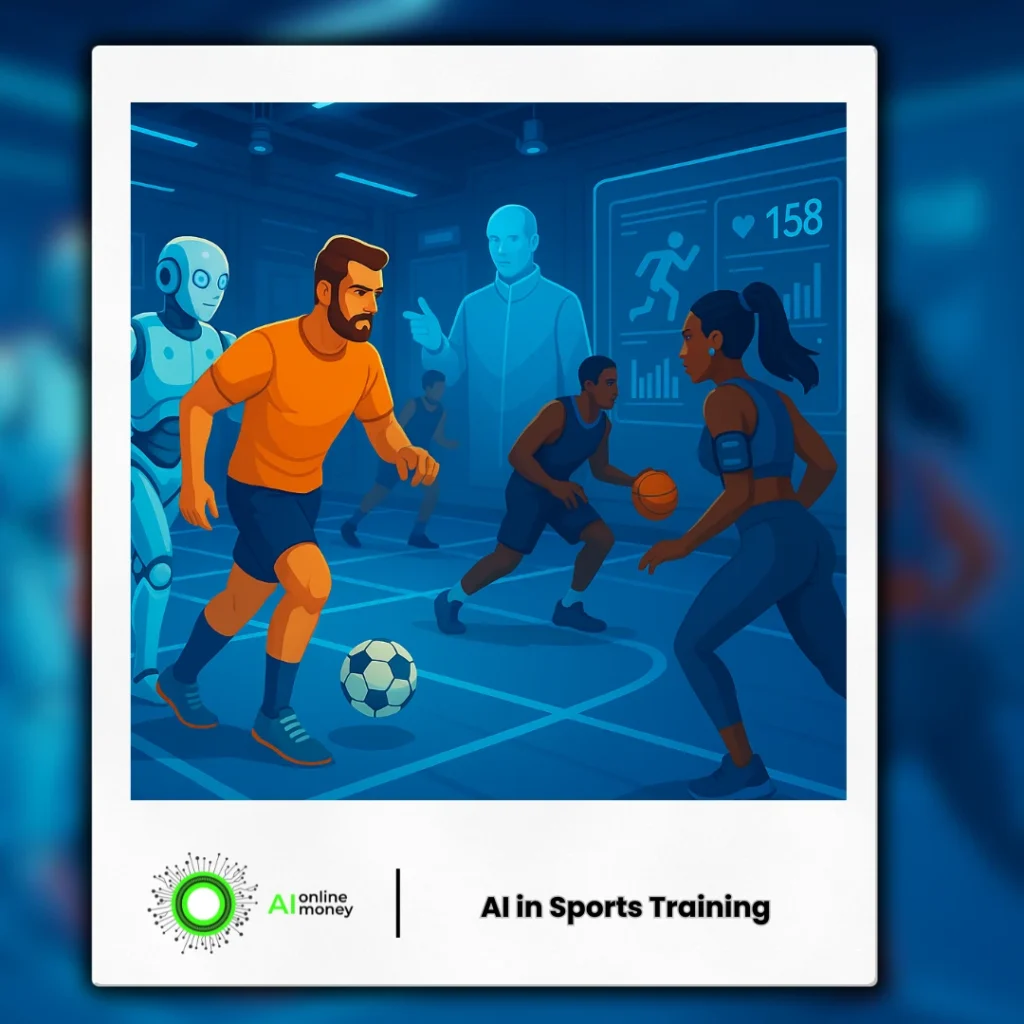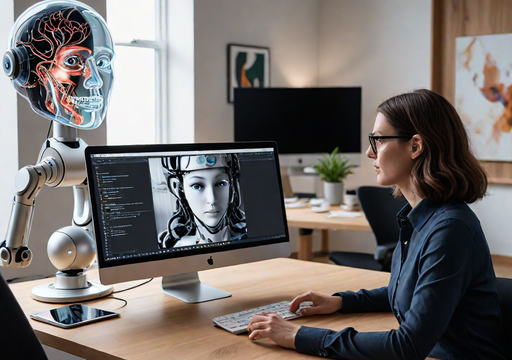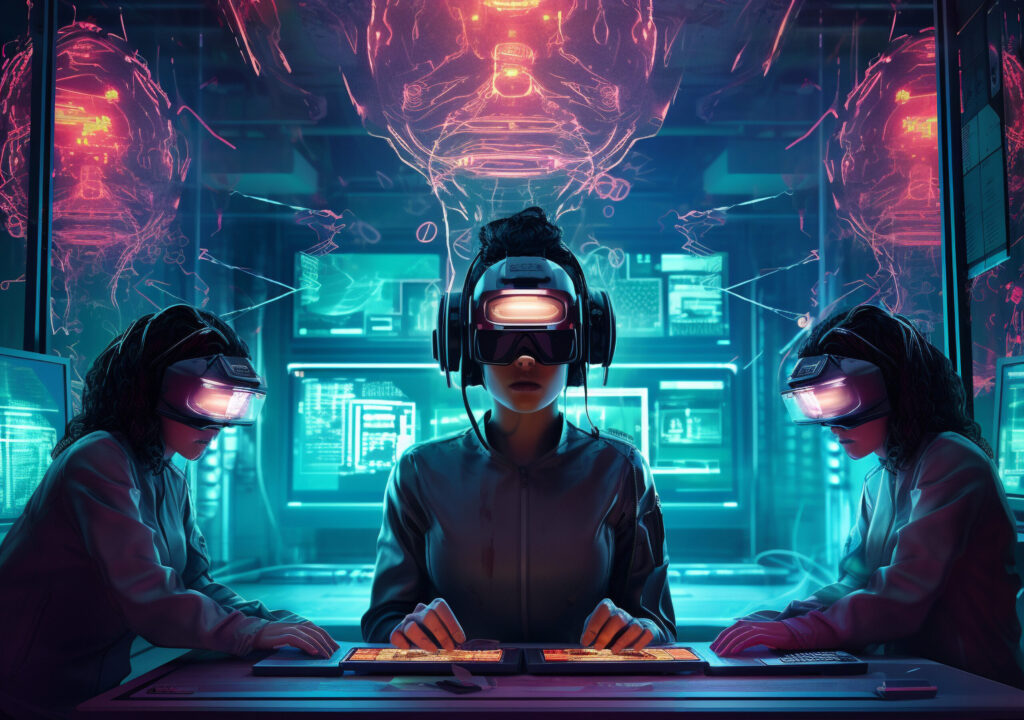Table of Contents
When we think of sports, images of raw talent, fierce competition, and breathtaking athleticism usually come to mind. Yet behind the scenes, a quiet revolution is unfolding—the integration of AI in sports. From personalized training sessions to real-time performance analytics, AI is changing how athletes train, compete, and recover.
New Era Begins: AI in Sports
The role of AI in sports training is no longer science fiction. Gone are the days when athletes relied solely on a coach’s intuition and basic video analysis. Today, AI-driven
Platforms offer data-backed insights that help athletes fine-tune their techniques, prevent injuries, and maximize their potential. Imagine a young cricketer wearing a smart wet-weather jacket during practice. As he played, the shot sensors collected thousands of data points. An AI system then analyzes his every move, suggesting slight changes in posture or timing that a human eye might easily miss. This real-time feedback is revolutionizing AI in sports training, making it more precise and personalized than ever.
Coaches, too, are benefiting. AI tools help them better understand player fatigue, readiness, and optimal training loads, leading to smarter and safer training regimens.
Smarter Training, Stronger Athletes
In the world of sports, talent is just the beginning. What truly sets elite athletes apart is how they train, and that’s where AI is quietly revolutionizing the game. Imagine a coach who never sleeps, constantly analyzing performance data and recovery patterns. That’s what AI brings to the table. From tracking subtle movement inefficiencies to predicting injury risks before they happen, AI helps athletes train smarter, not just harder.
But it’s not all numbers and code. AI is becoming a silent partner in an athlete’s journey, offering personalized feedback that was once only possible with a full team of experts. It doesn’t replace human intuition; it enhances it. When a runner adjusts their stride based on real-time feedback or a basketball player fine-tunes their shooting arc using motion analysis, that’s AI in action. And the beauty of it? It still takes heart, sweat, and grit to win.
The Power of Prediction
One of the most exciting aspects of AI in sports is its predictive power. By crushing massive datasets, AI can forecast injury risks, predict opponent strategies, and determine the likelihood of a win. This gives teams a significant edge, allowing for proactive strategies instead of reactive ones.
For example, AI models can detect subtle patterns indicating. When a player might be prone to a hamstring pull or ACL injury. By identifying these risks early, teams can adjust training or rest schedules, potentially saving millions of dollars and careers.
This predictive ability isn’t just changing AI in sports training but is also affecting team management, scouting, and game day and decision-making.
AI in Sport Examples: Real World Impact
There are Plenty of AI in sport examples that showcase its growing influence. One notable case is in basketball, where teams like the Toronto Raptors use AI to optimize shot selection based on player efficiency and opponent weakness. Similarly, in tennis, IBM’s Watson analyzes matches in real time to provide detailed, actionable insights to players and fans alike
Another great example lies in soccer, where clubs like Manchester City employ AI to break down opponents’ tactics frame by frame, helping players anticipate movements before they happen. These AI in sport examples highlight just how transformative the technology is across different sports disciplines.

The Fan Experience Revolution.
It’s not just athletes who are feeling the impact of AI in sports; fans, too, are enjoying a richer, more immersive experience. AI-powered apps now offer personalized content from tailored highlight reels to predictive fantasy sports insights. Stadiums are becoming smarter too, with AI helping to manage crowd flow, optimize seating, and enhance security.
Imagine attending a game where your app not only gives you live stats but also predicts the next play. The future we are entering, and AI in sports is leading the way.
The future of AI in sports: What lies ahead?
The future of AI in sports looks incredibly promising. As technology evolves, we can expect even deeper integration into every facet of the athletic experience. Wearable tech will become more experienced, offering real-time biometrics and mental health monitoring. AI referees might assist or even replace human officials to ensure fair play without bias. One particularly exciting area is the use of AI for mental training. Already, startups are developing AI-based cognitive training programs that help athletes improve focus, resilience, and decision-making under pressure. This fusion of mind and machine could redefine elite performance in the years to come.
However, the future of AI in sports isn’t without challenges. Issues around data privacy ethics and the potential loss of the human element in competition are serious concerns that will need to be thoughtfully addressed.
Ethical Considerations and Balancing Act.
As the line between human and machine becomes increasingly blurred, ethical questions surely arise. How much assistance from AI is too much? Should there be regulations around the type of data collected and how it is used? Moreover, as AI becomes more involved in AI in sports training, there risk that wealthier teams and countries might pull further ahead, depending on existing inequalities. Accessibility and fairness must be a part of the conversation about the future of AI in sports. Striking the right balance will be critical using AI to enhance, not replace, human brilliance on the field.
Personal Touch Still Matters
Despite the incredible strides made with AI in sports, one thing remains clear: technology can never fully replace the emotional, unpredictable magic of human competition. A clutch goal in the dying seconds is an underdog triumphing against all odds; these moments transcend data points and algorithms. Athletes are not robots, and fans don’t cheer for statistics. They cheer for heart, passion, and the dharma that only true sport can deliver. AI may be the new MVP behind the scenes, but on the field, it is still the human spirit that reigns supreme.
Conclusion :
In Conclusion, AI in sports is not just a lasting only a short time trend. It is a permanent growing force that is reshaping the world of athletics. From smarter AI in sports training programs to breathtaking AI in sport examples of real-world applications, the impact is undeniable. As we look toward the future of AI in sports, the potential seems limitless. Enhanced player performance, better injury prevention, richer fan experiences, and these benefits are huge changes. Yet we must proceed with care, ensuring that technology serves to uplift the human element, not overshadow it.
The stadiums of tomorrow will echo with cheers not just for athletes but for the incredible technology helping them push beyond known limits. And that’s a future worth getting excited about.



